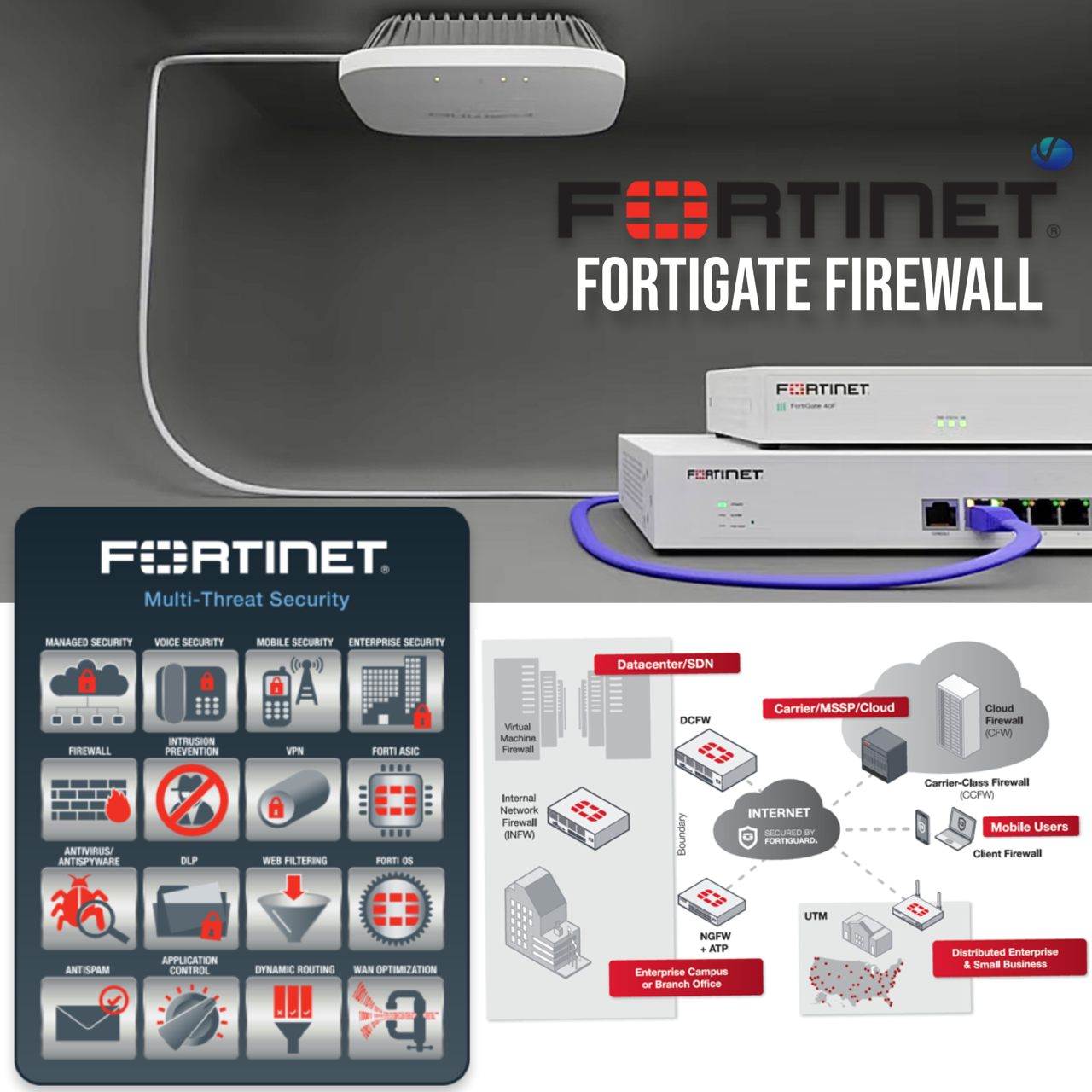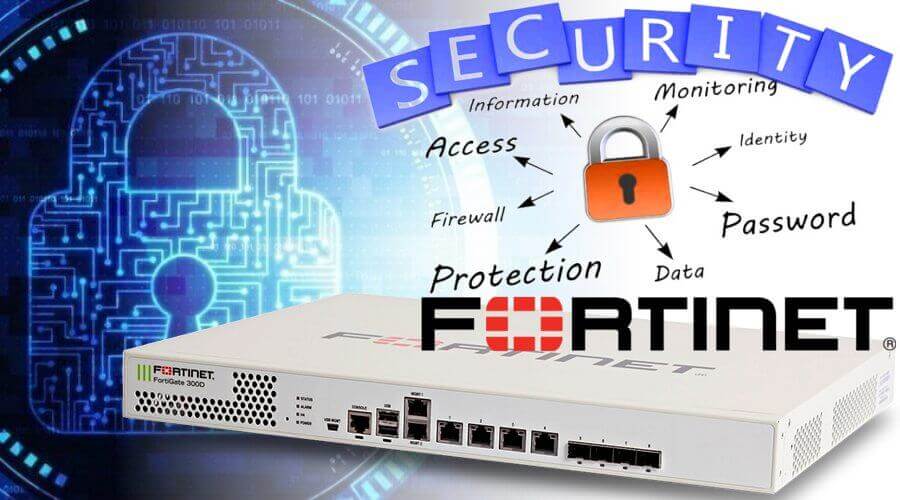The Fortinet Firewall: Why You Need It For Your Business
- 1 What is a firewall?
- 2 How does a firewall work?
- 3 What are the benefits of using a firewall?
- 3.1 Preventing unauthorized access to your network and systems:
- 3.2 Protecting your data from viruses and malware:
- 3.3 Enhancing privacy and security:
- 3.4 Improving performance:
- 3.5 How do I choose the right firewall for my business?
- 4 How do I set up a firewall?
When protecting your business, the Fortinet Firewall is a must-have. This comprehensive firewall solution provides advanced security against threats and risks to ensure the safety of your data, systems, and applications. With the Fortinet Firewall, you can rest assured that your business is well-protected from malicious attacks, data breaches, and other cybercrime activities. Discover why the Fortinet Firewall is an essential security tool for your business.
What is a firewall?
A firewall is a network security device that monitors incoming and outgoing traffic and controls access between an internal network and the outside world. Firewalls protect against external threats like hackers, malware, and unauthorized users. Firewalls can also enforce specific policies and restrictions, allowing only certain kinds of traffic or data to enter or leave a network.
Firewalls can be hardware- or software-based and work by inspecting each incoming and outgoing data packet for malicious content or suspicious behavior. The firewall then filters out the malicious packets before reaching the internal network. This helps to prevent hackers from infiltrating the network or stealing sensitive data.
In addition, firewalls also provide other services such as antivirus protection, website filtering, and encryption. By combining these services with strong access control measures, organizations can ensure that their networks remain secure and safe from external threats.
In conclusion, firewalls are essential for keeping networks secure and preventing unauthorized access. They can help to protect against malicious attacks, enforce access control policies, and provide additional security features such as antivirus protection, website filtering, and encryption.
How does a firewall work?
A firewall is a system designed to protect your network and data from malicious activity. It acts as a barrier between your internal networks and the public internet, blocking potential threats and allowing legitimate traffic. A firewall analyzes and filters network traffic based on pre-defined security rules. The rules are configured so that only authorized traffic can pass through while any unauthorized traffic is blocked.
When data enters or leaves the network, the firewall inspects it for malicious or suspicious content. It looks for known malware signatures, dangerous IP addresses, and other suspicious activity. If the firewall finds anything considered a threat, it will block the traffic from entering or leaving the network. The firewall can also be configured to log all attempts at accessing the network, allowing administrators to review and investigate any suspicious activity.
In addition to blocking malicious traffic, firewalls can help protect networks from unauthorized access by using authentication methods such as username/password combinations or public key infrastructure. Firewalls can also help control which applications are allowed on the network and limit user access to sensitive information.
In summary, firewalls protect networks from malicious activity and unauthorized access. They can analyze and filter network traffic according to pre-defined security rules, block suspicious activity, and control user access to sensitive data.
What are the benefits of using a firewall?

Using a firewall is essential in protecting your business from external cyber threats. Firewalls are the first defense against malicious hackers and other malicious actors, preventing unauthorized access to your networks, computers, and data. A firewall can also provide increased security for your internal networks and help protect your company’s confidential data.
The benefits of using a firewall include:
Preventing unauthorized access to your network and systems:
By controlling access to your network and systems, a firewall can protect them from unauthorized users. This is especially important for businesses that handle sensitive customer or business data.
Protecting your data from viruses and malware:
Firewalls are designed to detect and block malicious traffic, such as viruses and malware, helping to protect your data from being compromised.
Enhancing privacy and security:
Firewalls can also help to protect your data from being stolen by encrypting it as it passes through the system. This helps to prevent data breaches and maintain the privacy of your customers.
Improving performance:
Firewalls can also help improve your network’s performance by controlling which traffic can be sent and received, as well as limiting certain types of applications. This can help reduce the load on your system and improve overall speed and reliability.
Businesses can greatly improve their security, privacy, and performance by utilizing a firewall. Fortinet’s firewall solutions are ideal for companies that need reliable protection against external cyber threats. Fortinet Firewalls provide businesses with the most secure and robust protection with advanced features such as deep packet inspection, application control, virtual private networks (VPNs), intrusion prevention, and more.
How do I choose the right firewall for my business?
Choosing the right firewall for your business is an important decision that can have a big impact on the security of your network. When selecting a firewall, there are many factors to consider, such as the size and complexity of your network, the type of traffic you’ll be allowing or blocking, and the budget for the firewall.
The first step in choosing the right firewall is understanding the type needed. Several different types of firewalls are available today, including packet-filtering firewalls, proxy firewalls, stateful inspection firewalls, and application-level gateways. Each of these has its advantages and disadvantages, so it’s important to understand their differences before making a decision.
Once you’ve determined what type of firewall best suits your needs, the next step is to decide which brand you want to use. Fortinet Firewall is a popular choice among businesses because of its comprehensive security features and ease of use. Fortinet Firewall is designed to protect your network from external and internal threats and can filter traffic based on source, destination, and application. In addition, Fortinet Firewall is compatible with various other security solutions, so you can easily integrate it into your existing security infrastructure.
Finally, it’s important to ensure that the firewall you choose meets all of your specific requirements. Before purchasing, read reviews and compare different models to determine which one best suits your needs. It’s also important to ensure the firewall you select is easy to install and configure. Fortinet Firewall is designed to be quick and easy to set up, so you won’t have to worry about complicated configurations or lengthy setup processes.
Choosing the right firewall is essential to ensuring your network’s security. With the right firewall, you can ensure that your network remains safe from external threats while allowing authorized users access. Fortinet Firewall is an excellent choice for businesses looking for a comprehensive yet user-friendly security solution. With its robust security features and easy setup process, Fortinet Firewall will meet all your business’s security needs.
How do I set up a firewall?
Setting up a firewall for your business can seem daunting, but it doesn’t have to be. With the right tools and resources, your firewall can be up and running quickly.
The first step is to choose the right firewall for your business. When selecting a firewall, you should consider its level of protection and whether it meets your specific needs. Fortinet offers a range of firewalls to fit any business size or type. Once you have selected the right firewall for your company, you can start the installation process.
When installing a Fortinet Firewall, you should ensure all the ports are open and configured correctly. Additionally, you will need to ensure that all users have the correct access privileges to access the services they need. You should also create a firewall configuration backup if something goes wrong during installation.
Once your firewall is installed and configured, you must set up regular updates and maintenance. Fortinet Firewalls come with automated updates, so you won’t need to worry about manually applying them. Additionally, keep track of any changes in your network and update your firewall accordingly. Finally, review your firewall regularly to ensure its security and effectiveness.
Following these steps, you can easily set up a secure and reliable Fortinet Firewall for your business. With a Fortinet Firewall, you can rest assured that your business is protected from online threats and intrusions.

















